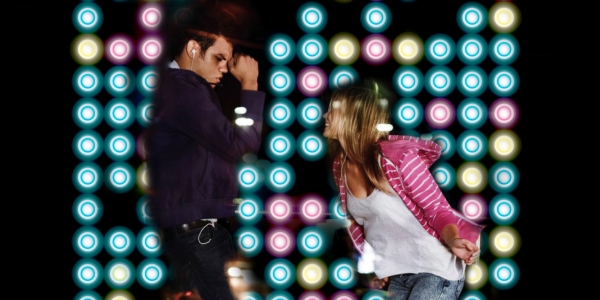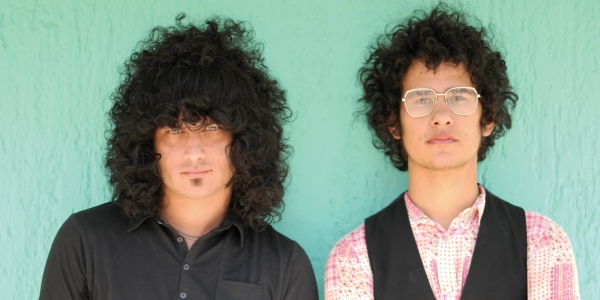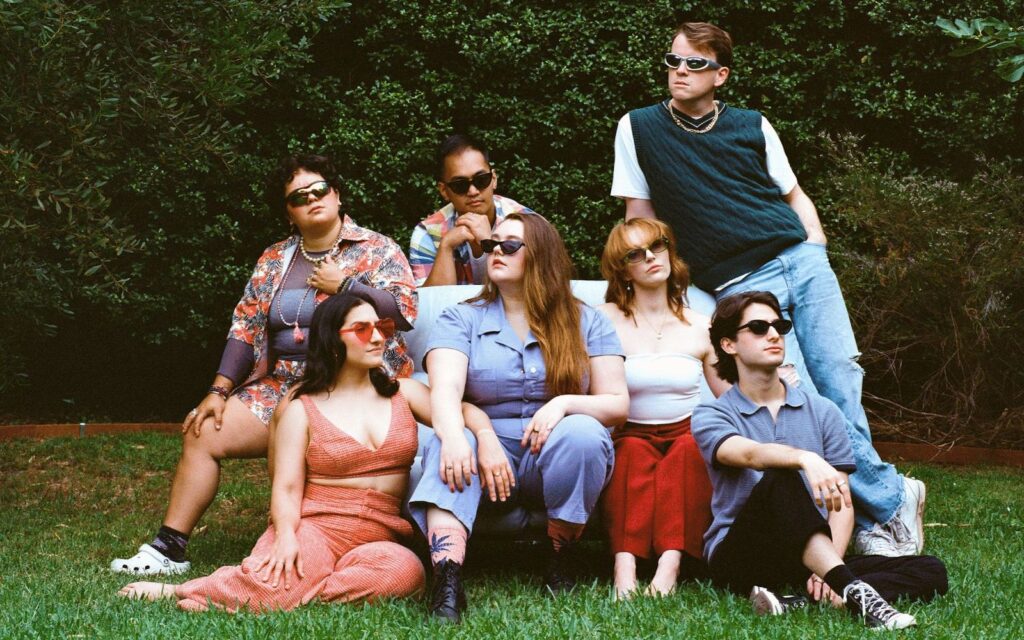Bodies sway in time with an inaudible rhythm. Mouths move in synch with lyrics we must lip-read to decipher. Sounds normally obscured by blaring club speakers now echo across the packed room – the scuffle of feet, the dull thud of hips bumping or the occasional click of over-enthusiastic fingers. This scene is not an after-party for the Annual Mime Convention. This is a silent disco, that strange phenomenon in which a crowd convenes to dance to music transmitted via wireless headphones.
It was after witnessing such an event for the first time in Sweden that playwright Lachlan Philpott found the elusive title for his latest work. Struggling to comprehend the scene, Philpott spied two teenagers fighting amidst the throng of dancers, yelling at each other while still wearing headphones. For Philpott, this image perfectly encapsulated the experience of adolescence in our tech-obsessed present that his play explores – that contradictory mix of isolation and communality, of yearning to be heard yet blocking each other out. “You put the headphones in, and it’s kind of the alienation effect,” says Meyne Wyatt, who plays protagonist Jasyn in the upcoming production. “You’re still in the same world, but you’ve closed yourself off”.
Silent Disco will begin its season at the Arts Centre’s Fairfax Studio on August 4, but the play has already received much praise from critics and audiences alike. Merging an intense lyricism with the vernacular of the contemporary classroom, Philpott’s script took out the Griffin Award in 2009 for outstanding new Australian play. It was then staged at the Griffin Theatre earlier this year before touring regionally in Albury and Penrith.
Set in a Sydney public school, Silent Disco focuses on a teenage couple, Tamara (Sophie Hessner) and Jasyn, whose fledgling relationship is set against a backdrop of broken homes. Tamara is a would-be writer, but Wyatt’s character Jasyn struggles to express himself and give voice to the difficulties he is experiencing beyond the school gates – his Dad isn’t around, his older brother is in jail for dealing and his Mum is more interested in her new love interests than her sons. “I related to him,” says Wyatt. “I read the play and I went, ‘This is a person that I know. I grew up with this person’. So he was a character that I understood straight away… It wasn’t that long ago that I was a teenager, so I could understand on that level too”.
This is Wyatt’s second production after graduating from NIDA in 2010, following his debut in The Brothers Size at Griffin Theatre earlier this year. For such a newcomer, working with director Lee Lewis must have been an intimidating prospect. Wyatt met Lewis as a teacher at NIDA, but she has directed productions at Belvoir St Theatre and Sydney Theatre Company in the past. “She works from a very logical view point,” says Wyatt. “I like to work that in that kind of intellectual, cerebral way, because my natural strength is to go emotional, in a feeling kind of way. It challenged me, and it made me think more about what’s going on in the scene”.
Tamara and Jasyn are studying S. E. Hinton’s The Outsiders, a 1960s classic about rival teen gangs, the Greasers and the Socs, in an Oklahoma high school. You won’t find any switchblades in Silent Disco though; their battles are fought with virtual weapons. Indeed, it is technology that Wyatt sees as defining the current-day classroom from that of Hinton’s era. “Back in the old days – well, not the old days. What am I talking about? That would’ve been back when I was at high school! – you’d pass a note around the classroom. Now you can just SMS… Rather than teaching what you’ve got on your page, [teachers] have got to compete with all these things that kids can play with these days – you know, phones and iPods and things like that”.
Despite the isolation engendered by such gadgetry, however, it is also technology that allows Jasyn and Tamara to share the difficulties of adolescence. (They communicate largely via SMS on stage.) And moreover, it is this sharing of experience that offers them hope in an otherwise bleak world. “They’re both looking for a connection and some feeling of love, and I think they find it with each other”.







